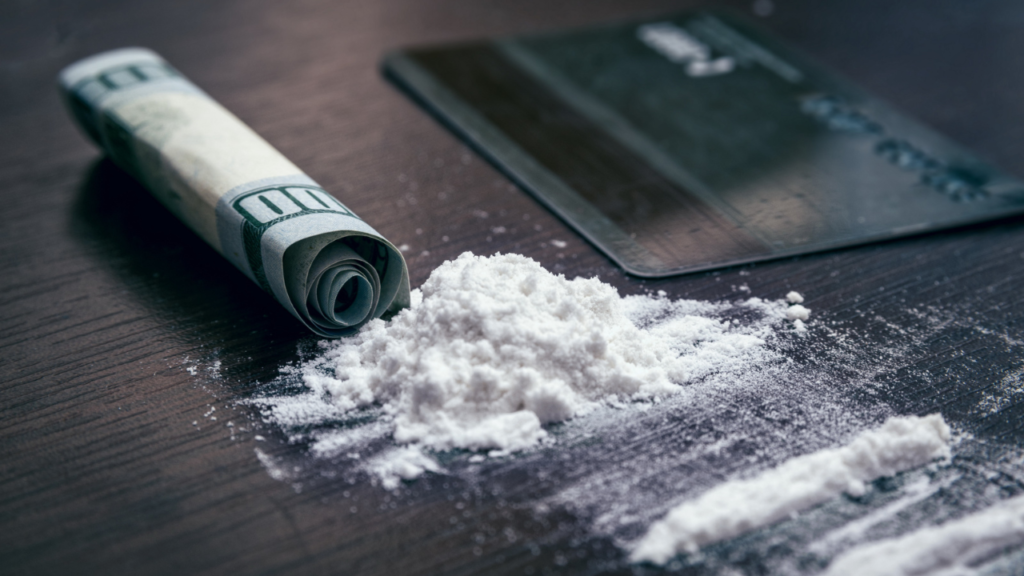Just like SUVs dominate the American vehicle market, cocaine addiction remains a prevalent issue in our society. While overcoming addiction is a challenging journey, the right drug rehab program can make all the difference. In this blog post, we will explore the effectiveness of drug rehab programs in addressing cocaine addiction and provide insights on how individuals struggling with this substance abuse disorder can find hope and support on their path to recovery.
Key Takeaways:
- Cocaine addiction can be overcome: With the right drug rehab program tailored to individual needs, individuals struggling with cocaine addiction can effectively overcome their dependency.
- Comprehensive treatment approach: Successful cocaine addiction treatment programs often include a combination of therapy, medication, support groups, and lifestyle changes to address the physical, mental, and emotional aspects of addiction.
- Continuous support and aftercare: Long-term recovery from cocaine addiction may require ongoing support and aftercare to prevent relapse, emphasize the importance of building a strong support network post-rehab to maintain sobriety.

Foundations of Effective Cocaine Rehab Programs
Tailored Treatment Approaches
Effective cocaine rehab programs understand that individuals struggling with addiction require personalized treatment plans to address their unique needs. By offering customized approaches that take into account the individual’s background, co-occurring disorders, and level of addiction, rehab centers can provide comprehensive care that increases the likelihood of successful outcomes. At TCI, our tailored treatment plans are designed to address each person’s specific challenges and goals, ensuring a more effective recovery journey.
Detoxification and Pharmacotherapy
Programs that incorporate detoxification and pharmacotherapy as part of their treatment protocols can significantly improve the chances of overcoming cocaine addiction. Detoxification helps individuals safely manage withdrawal symptoms, while pharmacotherapy utilizes medications to reduce cravings and prevent relapse. Understanding the importance of this dual approach, reputable rehab facilities integrate detox and pharmacotherapy into their comprehensive treatment plans to support individuals in achieving lasting recovery from cocaine addiction.
Behavioral Therapies and Counseling
It is imperative to consider behavioral therapies and counseling when addressing cocaine addiction. These interventions play a crucial role in helping individuals understand their addiction and develop effective coping strategies. For those struggling with cocaine addiction, seeking professional help at a Cocaine Addiction Treatment Center | Young Men’s Rehab | NC can provide structured support and guidance in the recovery journey. Behavioral therapies and counseling aim to address the root causes of addiction, enhance motivation for change, and build resilience against cravings and triggers.
Cognitive Behavioral Therapy (CBT)
On the frontline of evidence-based treatments for cocaine addiction is Cognitive Behavioral Therapy (CBT). This therapy focuses on identifying and modifying negative thought patterns and behaviors that contribute to substance use. By addressing distorted thinking and promoting healthier coping mechanisms, CBT empowers individuals to manage triggers, cravings, and high-risk situations effectively.
Family Therapy and Cocaine Addiction
Behavioral therapy involving family members is crucial in addressing cocaine addiction comprehensively. Family therapy helps mend relationships, improve communication, and create a supportive environment for the individual in recovery. By involving loved ones in the treatment process, the individual can receive holistic support and work towards sustainable sobriety.
The role of family in an individual’s recovery journey from cocaine addiction is significant. Family therapy not only addresses the impact of addiction on the family dynamics but also helps to strengthen the support system for long-term success.

Supportive Services in Cocaine De-Addiction
Relapse Prevention Strategies
Many individuals struggling with cocaine addiction benefit from the supportive services offered in drug rehab programs. These services often include relapse prevention strategies aimed at helping individuals identify triggers and develop healthy coping mechanisms to prevent a return to substance use.
Aftercare Planning and Ongoing Support
Services such as aftercare planning and ongoing support are crucial components of a comprehensive cocaine de-addiction program. After completing a rehab program, individuals are supported in creating a plan for continued sobriety, which may include ongoing therapy, support group participation, and regular check-ins with a counselor or support team.
Planning for the transition from a structured rehab environment back to daily life is important for long-term success in overcoming cocaine addiction. Ongoing support helps individuals navigate challenges that may arise post-rehab and provides a safety net to prevent relapse and maintain sobriety.
Evaluating the Right Drug Rehab Program for Cocaine Addiction

For those struggling with cocaine addiction, seeking the right drug rehab program is crucial for successful recovery. Finding the most suitable treatment facility can significantly impact the outcomes of addiction treatment. To learn more about Cocaine Treatment and Rehab, visit Cocaine Treatment and Rehab.
Factors to Consider When Choosing a Rehab Facility
When deciding on a rehab facility for cocaine addiction, there are several factors to take into consideration to ensure the best possible chance of recovery. Some key aspects to weigh include the facility’s accreditation, treatment approaches offered, staff credentials, success rates, aftercare programs, and location. Knowing that each individual is unique, it is crucial to choose a program that aligns with specific needs and preferences.
The Role of Multi-Disciplinary Teams
Addiction recovery requires a comprehensive approach, which is why multi-disciplinary teams play a vital role in rehab programs for cocaine addiction. These teams consist of professionals from various backgrounds such as doctors, therapists, counselors, and support staff who collaborate to provide holistic care. Rehab programs with multi-disciplinary teams can address the physical, psychological, and emotional aspects of addiction, leading to more effective and sustainable recovery outcomes.
Conclusion
Now, it is evident that cocaine addiction can be overcome with the right drug rehab program. By combining evidence-based therapies, medical assistance, and holistic approaches, individuals struggling with cocaine addiction can successfully recover and lead fulfilling lives. It is crucial for individuals to seek help from reputable rehab centers that offer personalized treatment plans to address their specific needs. With determination, support, and the right program in place, overcoming cocaine addiction is achievable.
FAQ
Q: Can cocaine addiction be overcome with the right drug rehab program?
A: Yes, cocaine addiction can be overcome with the right drug rehab program. Professional treatment programs tailored to address cocaine addiction can provide the necessary support, therapy, and resources for individuals to recover and lead a drug-free life.
Q: What are some key components of an effective drug rehab program for cocaine addiction?
A: Some key components of an effective drug rehab program for cocaine addiction include personalized treatment plans, detoxification under medical supervision, individual and group therapy sessions, dual diagnosis support for co-occurring mental health disorders, life skills training, relapse prevention strategies, aftercare planning, and ongoing support.
How long does the recovery process take with the right drug rehab program for cocaine addiction?
A: The duration of the recovery process with the right drug rehab program for cocaine addiction can vary depending on individual factors such as the severity of addiction, co-occurring disorders, and the level of commitment to treatment. Typically, residential rehab programs can last 30 to 90 days, while outpatient programs may range from several weeks to several months. However, recovery from cocaine addiction is a lifelong journey, and ongoing support and maintenance are crucial for long-term success.




















